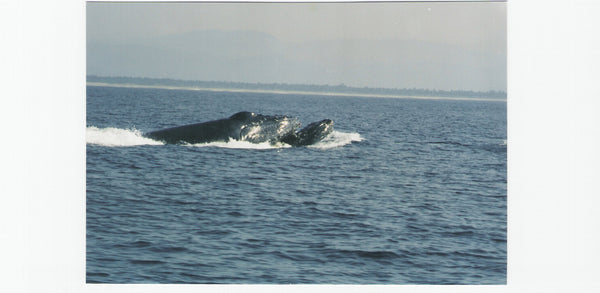In the summer, humpback whales travel to the cold polar waters to fill up on krill, plankton and small fish. Then, when things are getting colder, they migrate to the equatorial regions to mate, give birth and nurse their young in the winter months.

Show some whale love with the limited-time all Whale coraclip packs this week only! Every purchase gives back to conservation groups protecting whales, marine animals, and their habitats!

When Whales and Marine Debris Collide
Whales species may be among the biggest animals in the world, but they face man-made threats to their survival in many ways. In modern day, some of those greatest threats include marine debris entanglement and ingestion (NOAA).
Entanglement can occur when a whale is swimming around either working or derelict fishing gear, often traced to the vertical lines connecting crab or lobster pots to their buoys on the water surface. These lines are thought to be too small for whales to see or so small they do not try to avoid them, so if the line gets hooked on a pectoral fin, whales will roll in an attempt to brush it off, but can sometimes accidentally wind the rope around their bodies instead.
In the Humpback Sanctuary in Hawaii, as many as 40 percent of the humpbacks have scars from entanglements. These entanglements can cause significant physical damage to whales if the ropes cut into their skin and create drag through the water that forces the whale to exert more energy, reducing their reserves to successfully migrate long distances and birth healthy young.

Ingested marine debris has been discovered in the bellies of deceased whales, sometimes dozens of pounds and ranging from sandals to plastic grocery bags to unidentifiable microplastics.
If a whale’s belly is filled with indigestible trash, it will have less room to eat its proper food. This problem compounds over time if the whale continues to consume marine debris, which accumulates in their stomach. Without proper nutrition, migration and birthing young becomes more difficult.
Protect the Ocean Everyday
As these mighty creatures face real harm from marine debris, we know that we can make a positive difference by changing the status quo on our shores and in our homes. Every effort we make to reduce our consumption of single-use items and take care of our belongings through responsible, secure disposal can help keep trash from finding its way into our waterways and the ocean.
Our team at Cora Ball have created the coraclip as one example of where we can do better in our everyday routine to cut out unnecessary plastic and switch to sustainable, beautiful materials. We were very excited to add sustainable Swedish dishcloths with our humpback whale design to the eco kitchen goods lineup last year, and this is a perfect time to pick some up for your everyday needs.

